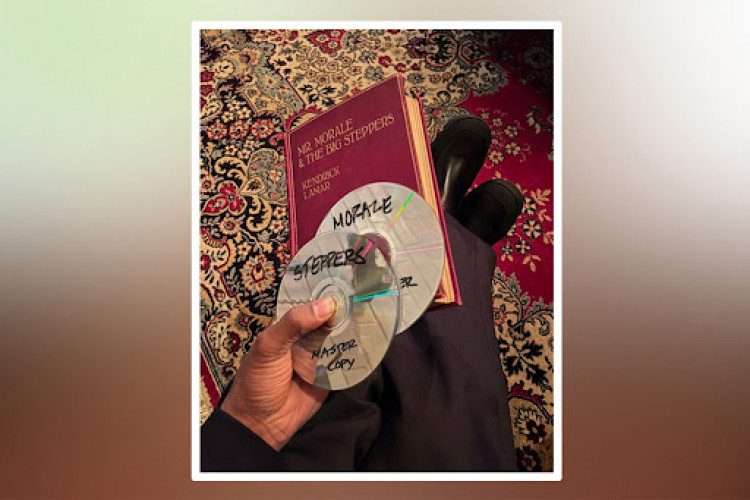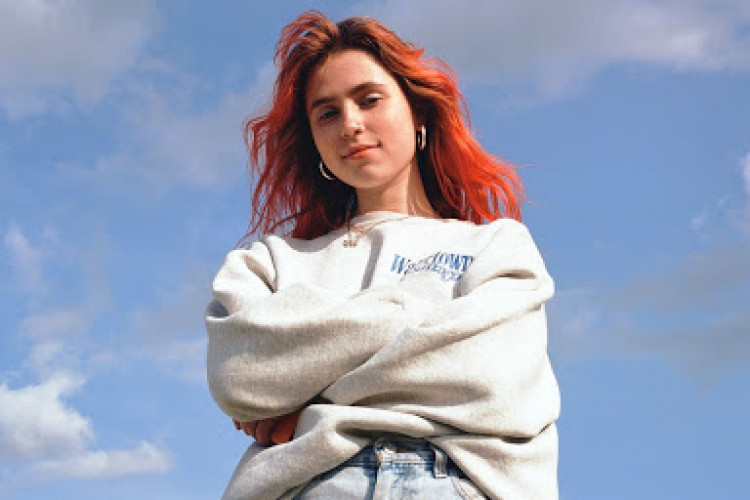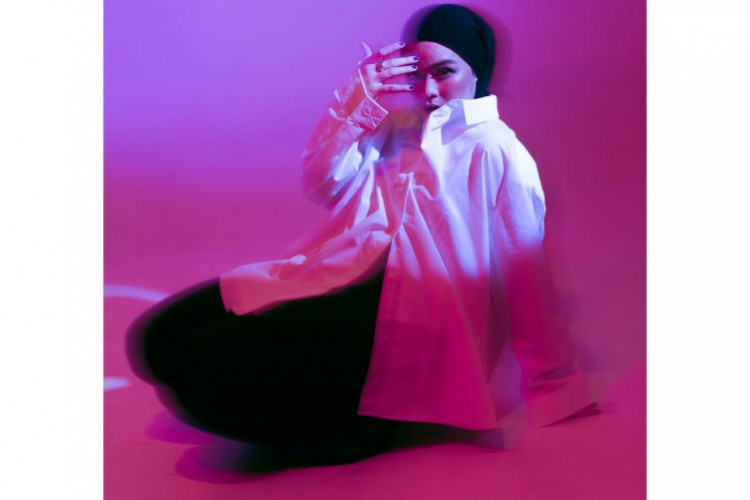
Wolf Alice on Being Vulnerable and Exceeding Expectations for “Blue Weekend”
We had the chance to talk to Wolf Alice about their upcoming album “Blue Weekend”, the vulnerability in lyrics and coming back with a bang.
Words by Ghina Sabrina
Photo: Jordan Hemingway
After just releasing two albums (and three EPs), Wolf Alice has explored an assemblage of sounds and stories while becoming bolder and more confident on each release. Known for their explosive live acts and relentless tracks such as “Yuck Foo” and “Giant Peach” as well as the more sentimental ones such as “Bros” and “Don’t Delete The Kisses”, it’s not a surprise they’ve scooped up nominations for a Grammy, a BRIT and even managed to have won a Mercury Prize for their second album “Visions Of A Life”. I got the chance to listen to some of their new tracks off of their upcoming album “Blue Weekend” (with “Lipstick on the Glass” being my favourite so far) and then talked about it amongst other things with Ellie Rowsell, Joel Amey, Joff Oddie, and Theo Ellis.
“The Last Man on Earth” became the first peek into your latest album. It was a delicate yet vulnerable song, which is also a surprising choice as you often opt for louder tracks as lead singles in the previous albums. What goes behind this decision?
ER: I think having the strings, the grand piano and the choral voices in the songs kind of felt like even though it might not be our loudest, heaviest song, it was one of our biggest. So it felt kind of momentous because of that and I guess it’s nice to come back with things that people might not expect as well just because it makes it more fun for us.
You’re releasing your third album “Blue Weekend” this year, how do you think you’ve grown since “Vision Of A Life”? And what are the challenges when writing a follow-up to a Mercury Prize-winning album?
TE: I think we’ve grown in confidence for sure as musicians and songwriters in the way we have a certain set of capabilities that we know we can take into a studio and we can realise the ideas that we have. And I think that confidence, while it was amazing, also meant that what we’re trying to make we wanted to make it supersede our expectations of what “Visions Of A Life” or “My Love is Cool” was. So I think we kind of took our time and struggled a bit with marrying all of the songs together. And when we have the demo, this was to make what we thought was the best version of the demos to do the songs justice and then I think it was a difficult process, to be honest, it took us a long time to get the songs into the right place and to get those songs recorded in the right way. But I think we’ve reaped the benefits for it because I think it’s probably the most refined and most detailed body of work we’ve made.
It’s nice to come back with things that people might not expect.
For this album, you went to Belgium to work with Markus Dravs. What was the reason behind going to Belgium and working with him?
JA: We were lucky enough to speak with a few people before we started recording actually. But we had a nice chat with Markus over Skype when he was still in Nashville, we just liked the vibe, he’s a lovely man and he seemed excited to be working with us and I think that’s half of it to be fair. You know you want to work with somebody who wants to work with you and we had a really nice experience with our EP “Creature Songs” at ICP which is the name of the studio in Belgium.
I think it’s always been on our list to go back, we had nice fun, nostalgic memories, amazing equipment and they’ve got a really lovely group of people that work there. And it’s nice to kind of put yourself in a different space I think when you’re making a record and take yourself away from many distractions that your hometown might have. Eventually, there was quite literally no distraction, so it went to the other extreme because of coronavirus. It was just really nice to use it as a reason to get away and just put ourselves in a bubble and just focus on “Blue Weekend”.
How long was the recording process?
JA: We got there the last week of January and then we had about 4 weeks before they lock the country down because of coronavirus. And then we didn’t get home till May. So it was a long time just on the actual recording process and then prior to that we had the experience of getting together and writing it. It’s been a while with our heads in “Blue Weekend”.
I think it’s probably the most refined and most detailed body of work we’ve made.
You’re known for the non-traditional approach of not sticking to one particular genre from your previous albums. How do you usually decide which sounds fit a particular track when writing music?
JO: I don’t want to say this thing because it’s going to sound pretentious, but I can’t think of another word, so forgive me, but a je ne sais quoi kind of thing where I don’t think we can really explain it but I think we all know when something is a Wolf Alice song and when something’s maybe not a Wolf Alice song because we’ve got a lot of writers in the band. When you make an album you write a hell of a lot of songs and you cut a lot of songs. You don’t just write 11 songs and that’s it. I can’t think how many songs would’ve been written in the intervening years in between the things that made the demo lists and the things that didn’t make the demo lists. There are probably hundreds of things. I think it’s a feeling and a shared understanding we have where we go, “This works and this feels like Wolf Alice.” We’ll work on other songs for a really long time and just have to get it right, or we just have to let this one go because it just doesn’t feel right and that’s a really hard thing to explain.
So that’s a really long and winded answer to, “I don’t know.”
So it’s more of a “trust your gut” situation.
JO: You’ve explained it better than me in a couple of words.
When listening to your music, we’re automatically transported to a particular situation or even a certain feeling. Aside from the musical aspects, the vulnerability in your lyrics plays a huge ingredient in this quality as well. What are your thoughts on this?
When it feels scary to be vulnerable you just remember how I appreciate other people being vulnerable in their art.
ER: I think when it comes to lyrics and being vulnerable or opening up or maybe talking about things that maybe feel a bit daunting I just think you just got to remember how much you appreciate or, for me, it’s how much I appreciate it when other people do it. You know, things that are difficult to talk about, some of the stuff that is so common in music and literature and film because it makes people feel less alone to hear about it. When it feels scary to be vulnerable you just remember how I appreciate other people being vulnerable in their art.
So it’s nice to feel seen by other people’s work as well, and you want to replicate that thought?
ER: I don’t really try to replicate that but when it feels like it’s embarrassing and it’s too much I just remember that that’s what I look for in other pieces of work. It’s not honesty and such, but just like not holding back.
Being your latest single, “Smile” has a huge 90’s feel and reminds me of something that would get the crowd screaming during your live show. As you’re going on tour soon, how does it feel finally being able to play live and what should your fans expect this time?
TE: January’s a long way away from now but I think it will be such a massive celebration, hopefully, if things keep going in the right way and people are able to come together and have a shared experience. I think people have been on their own for so long and probably felt isolated, I know I have clung to art, books, films, songs, so then to have that in a communal space would be amazing. I think we’re going to go for it as much as we possibly can and put on a great show and it will be so refreshed by the amount of time we’ve had away from it so I think it will be an amazing experience. I’m dreaming of it, to be honest.











